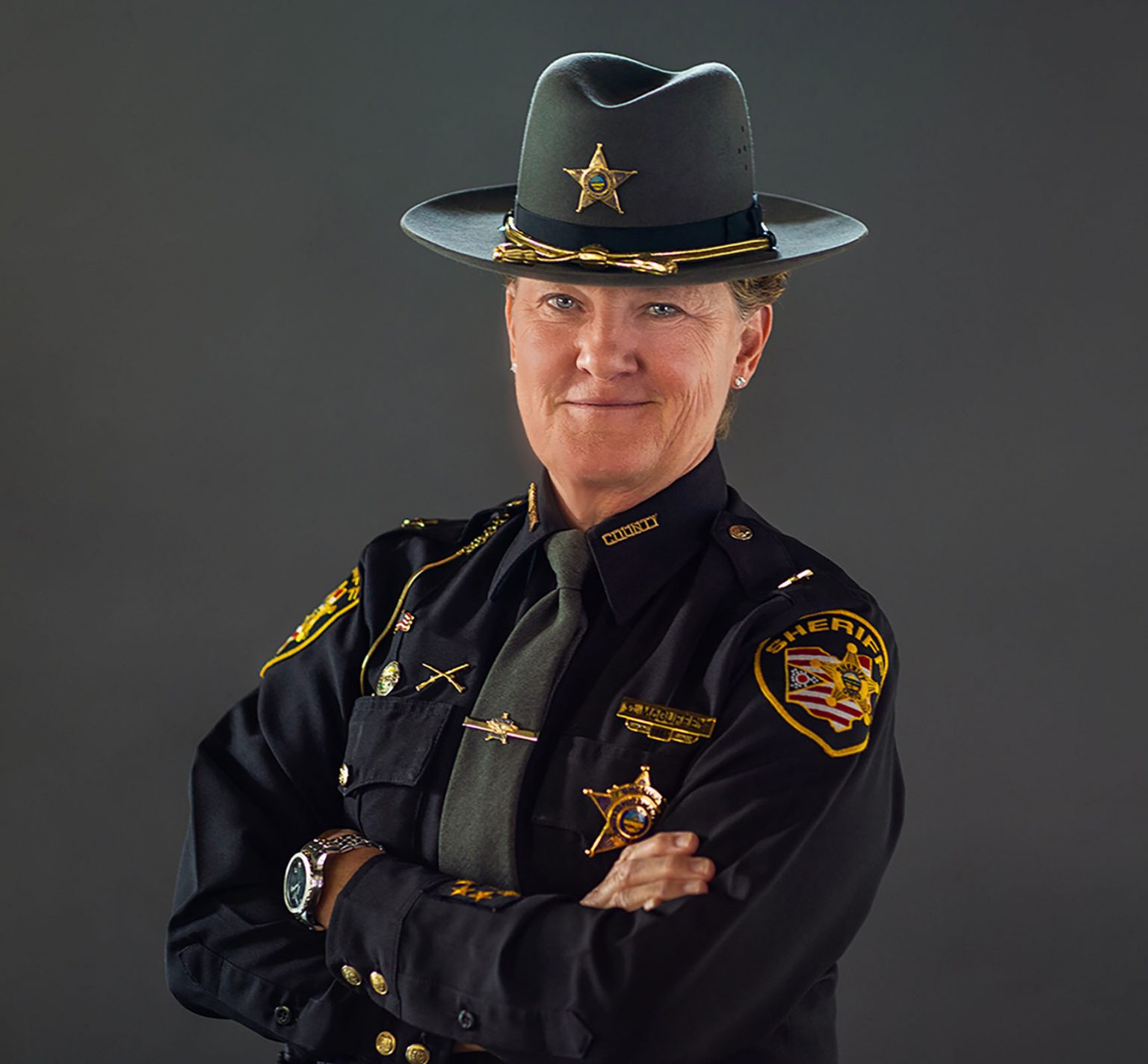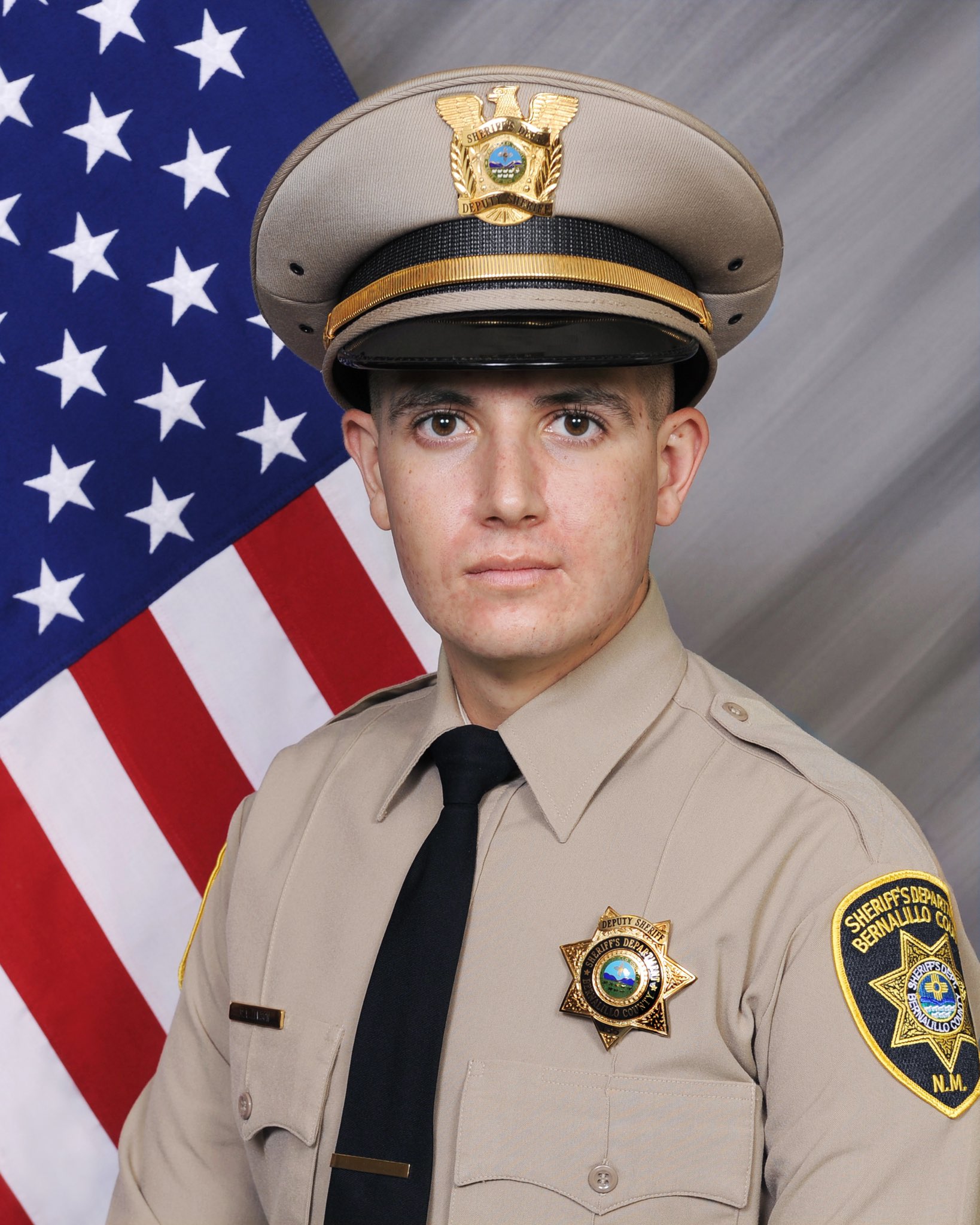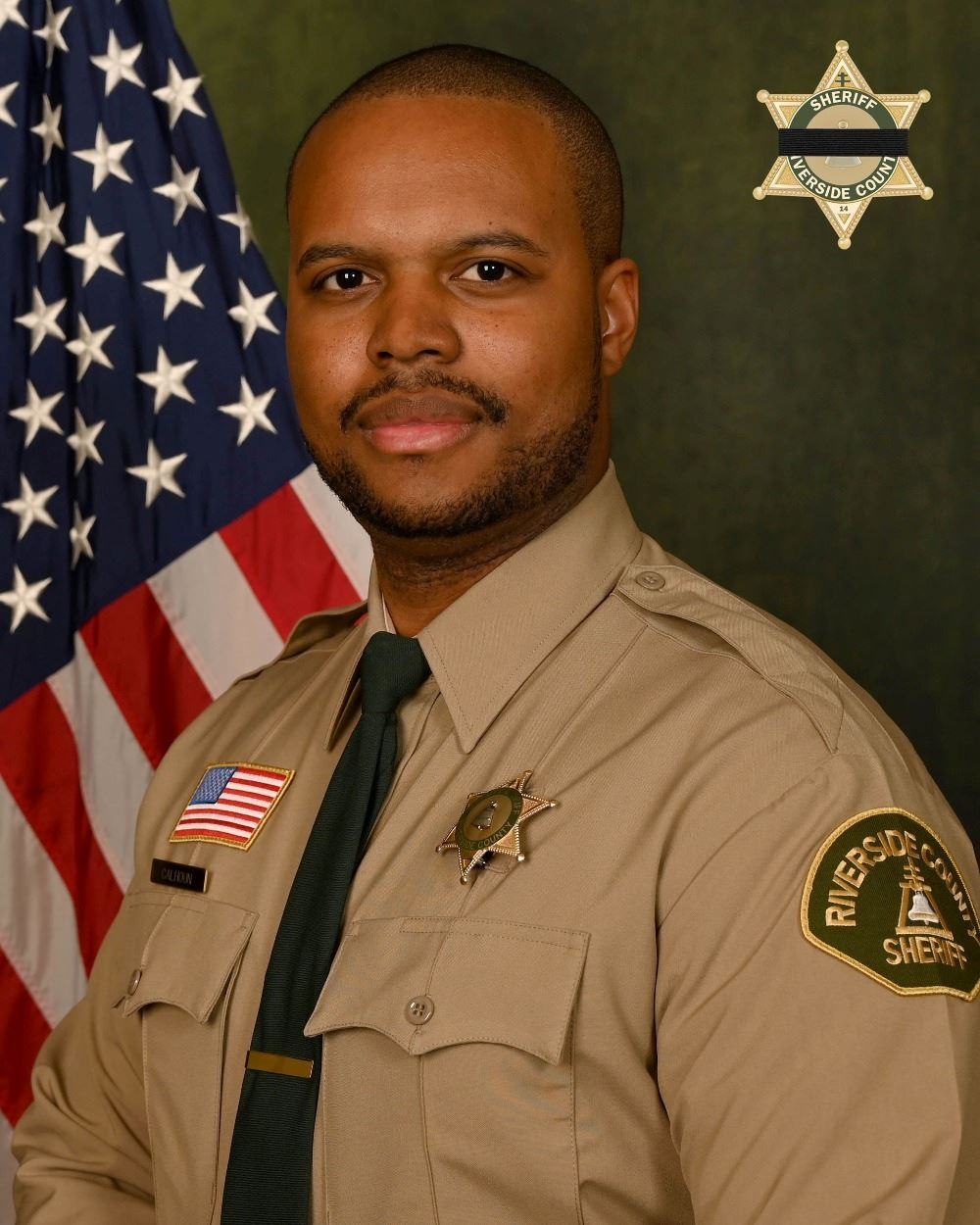The Sheriff Of Baghdad - Unpacking Law Enforcement Roles
Have you ever found yourself watching a show, maybe something like "Justified," and wondered about the folks with badges and guns? It's easy to get a little mixed up when you see characters like a US Marshal, carrying a firearm, able to take lives, yet not wearing a uniform, and working right there in the same building as the court. It makes you think about how different these roles might be, especially when you consider that a Marshal isn't quite the same as other law enforcement people you might picture. This whole area of public safety, with its various titles and duties, can seem a bit like a puzzle, with each piece fitting into a bigger picture of how order is kept in different places.
When we talk about keeping things safe and sound, especially in a place like the United States, there are a few different types of people with authority. You might hear terms like "police," "marshal," or "sheriff," and it's honestly not always clear what each one does. For a lot of people, the real head-scratcher often comes down to figuring out the difference between a sheriff and a marshal. These roles, while both involved in maintaining peace, have quite distinct origins and responsibilities, which is that part that can sometimes feel a little complicated.
So, we're going to take a closer look at these different positions, starting with the sheriff, a figure who has a long history in the way communities manage their own well-being. We'll explore how they get their jobs, what kind of work they do, and how they fit into the bigger picture of public safety, perhaps even considering how these ideas might apply to a conceptual "the sheriff of baghdad" type of role, just to make things interesting. It's all about getting a clearer picture of who does what when it comes to keeping us all secure.
- Evie Trap In Elevator
- Thea Fabregas
- Hootan Mazloomi
- Subhashree Sahu Leak Video
- Ssh Raspberry Pi Iot From Anywhere Download Free
Table of Contents
- Understanding the Sheriff - A Historical Look
- How Does a Local 'the sheriff of baghdad' Come to Be?
- Deputy Sheriff Versus Police Officer - Are They Alike?
- Who is Responsible for the Roads? What About 'the sheriff of baghdad' on the Highway?
- City Versus County Law Enforcement - Where Does 'the sheriff of baghdad' Fit?
- Could a 'the sheriff of baghdad' Be a Federal Agent?
- The Sheriff in Popular Culture - More Than Just a Song
- The Sheriff as a County Employee - What That Means for 'the sheriff of baghdad'
Understanding the Sheriff - A Historical Look
When we first think about a sheriff, it's probably best to think of them as a "county peacekeeper," even though "county law enforcer" might be a more precise way to put it. This idea of a county peacekeeper, as a matter of fact, was a rather uncommon notion back in the 17th century. After 1540, England began to put in place what they called "lord-lieutenants," and these individuals took over many of the main jobs that the county peacekeeper used to handle. Sometimes, the position of county peacekeeper even became something that existed only on paper, without anyone actually doing the work. It’s a bit like having a job title but no one filling the role, you know? This shift in duties shows how the way communities keep order can change over a long period.
The historical background of this role is, in some respects, quite interesting because it shows how responsibilities for public safety can evolve. What was once a very hands-on, local position could become less central as larger government structures came into being. So, the concept of a sheriff, or a county peacekeeper, has deep roots, but its actual power and influence have seen many transformations through the years. It’s not just a simple story of a single role staying the same; it's more like a story of adaptation and changing importance within the bigger picture of how societies manage their well-being.
How Does a Local 'the sheriff of baghdad' Come to Be?
Consider a small community, a town where folks pick someone to keep things orderly. That person, you see, is what we call a sheriff. They get their position, their ability to act, directly from the people who live there, which is a rather interesting way to go about it. Once chosen, this individual, with the backing of the town's people, brings in a group of folks to help out. They give these assistants the tools they need, like sidearms, so they can actually do the job of looking after everyone's safety. It's a system that, in a way, puts the power of community safety right into the hands of those who live there, making it very much a local affair.
- Aditi Mistry Nipslip
- Kristen Korean Dancer Is It Married
- Arlene Lee Leak
- Duckduckgo Vs Ecosia
- Is Brad Pitt An Only Child
This process of selecting a sheriff by local residents highlights a key difference from other law enforcement positions. It's not about being chosen through a selection process or being assigned to the role by a higher authority; it's about being elected by the very people you are meant to protect and serve. This democratic aspect means that the sheriff is, in a sense, accountable directly to the community members who put them in their position. It’s a very direct connection between the people and the person responsible for their safety, giving the role a unique flavor compared to other law enforcement jobs. This is how, perhaps, a conceptual "the sheriff of baghdad" might come into being if such a system were in place there.
Deputy Sheriff Versus Police Officer - Are They Alike?
Let's take, for instance, the county peacekeepers in Maricopa County. Everyone who works for a Sheriff's office, whether they are just a regular law enforcer or the actual second-in-command, a chief deputy, can actually be called a Deputy Sheriff. In this situation, a Deputy Sheriff is pretty much the same as a Police Officer. What this means is that their main job, the core of what they do, is to uphold the law and keep the peace, just like any police officer would. So, in many everyday situations, the duties and powers of these two roles are very similar, which can make it a little tricky to tell them apart just by looking at what they do.
The key point here, you know, is that while the titles might be different, the practical work often overlaps a great deal. A Deputy Sheriff, working for the county peacekeeper, is out there responding to calls, investigating situations, and generally making sure things are orderly, much like a city police officer. The distinction often comes down to the area they cover – county versus city – rather than a fundamental difference in their daily tasks. It’s a nuance that many people might not be aware of, but it’s an important one when trying to grasp the different layers of law enforcement that exist.
Who is Responsible for the Roads? What About 'the sheriff of baghdad' on the Highway?
Imagine someone, let's call him "Little John," who is very good at fighting, and he takes off down the I-10 highway. At this point, the highway law enforcers get involved in the chase. Highway law enforcers, or Highway Patrol, are specifically in charge of keeping things orderly on the highways and dealing with sudden events that happen there. So, at this moment, the main group doing the chasing becomes these highway law enforcers, who just stepped in to take over. It shows how different groups of law enforcement have their own specific areas they look after, and they come together when a situation calls for it.
This division of labor is quite important, you know, because it means that specialized groups handle particular kinds of situations. The highway law enforcers, for example, are very good at dealing with things that happen on busy roads, like speeding or accidents, which is a bit different from the general duties of a county peacekeeper or a city police officer. So, if we were to think about a conceptual "the sheriff of baghdad" and their duties, we might wonder if they would also have a specialized unit for their major roads, or if their role would encompass all aspects of public safety, including traffic. It’s all about how responsibilities are divided up to make sure every area is properly looked after.
City Versus County Law Enforcement - Where Does 'the sheriff of baghdad' Fit?
In the United States, a county is usually bigger than a city. A county is what you might call a "shire" or a "region." City police groups, like the LAPD, are generally called a Police Department or a Department of Public Safety. County groups, like the LASD, are typically known as a Sheriff's Office or a Sheriff's Department. This distinction is pretty important because it tells you which level of government that particular law enforcement group serves. So, if you hear "Police Department," you're likely thinking about city limits, but "Sheriff's Office" points to a broader, county-wide area.
This difference in scope means that a Sheriff's Office often has a much larger area to cover than a city police department, which is, you know, a big part of their identity. They might be responsible for areas outside of city limits, unincorporated regions, and even providing law enforcement services to smaller towns within the county that don't have their own police forces. So, if we were to imagine a "the sheriff of baghdad," we would need to consider if their authority would cover a specific city area or a wider regional territory, much like how it works with these different law enforcement groups here. It’s all about the boundaries of their work.
Could a 'the sheriff of baghdad' Be a Federal Agent?
A peacekeeper is not called a US Marshal; those are, you know, two completely separate things. A peacekeeper is called a Sheriff, and they are not chosen through a selection process; instead, they are picked by the local residents. They are a kind of local law enforcer, you could say they are a public servant. A US Marshal is not a local law enforcer; they are a federal court officer, meaning they work for the national government. This is a very important difference because it places them in entirely different parts of the legal system, with different bosses and different kinds of jobs.
The distinction between a local peacekeeper and a federal court officer is pretty clear, actually. One serves the immediate community and is answerable to the people who live there, while the other serves the national government and its judicial system. So, if we think about the idea of "the sheriff of baghdad," it's important to ask if such a figure would be a locally elected individual, deeply connected to the community they serve, or if they would be part of a larger, national structure, much like a federal agent. It’s a fundamental question about the source of their power and the scope of their duties, which really changes how they operate.
The Sheriff in Popular Culture - More Than Just a Song
His most well-known tune is probably "Get Up, Stand Up," which feels very much like a "socialist message song." Then there's "I Shot The Sheriff," which became, you know, super famous after the amazing blues rock musician Eric Clapton covered it. This particular song, "For This," has a history of its own. It shows how the idea of a sheriff, or a peacekeeper, has made its way into music and broader culture, becoming a symbol that people recognize and connect with, sometimes in unexpected ways. It's a testament to how these roles become part of our collective stories.
The song "I Shot The Sheriff" is, in some respects, a really interesting example of how law enforcement figures are portrayed in art. It's not just about a person with a badge; it's about power, justice, and sometimes, the tension between individuals and authority. The fact that such a song became so popular, especially with a cover by a big name like Eric Clapton, tells us that the figure of the sheriff holds a certain weight in the public imagination. It's more than just a job title; it's a character that embodies certain ideas about law and order, and sometimes, about pushing back against them.
The Sheriff as a County Employee - What That Means for 'the sheriff of baghdad'
An American peacekeeper, called a Sheriff, is an employee of the county. They are not a public servant in the typical sense, but rather, they are chosen by the county head or given permission by the county council to uphold the law within the county's boundaries. Often, a county law enforcement office is quite small, with just one peacekeeper and a few assistants to help them out, and that's it. This setup means that the peacekeeper is very much tied to the local county government, getting their authority from that specific level rather than from a state or national body. It's a very localized form of public safety.
This arrangement, where the peacekeeper is a county employee, has some important consequences for how they operate. It means their budget, their resources, and their overall direction come from the county government, which is a very direct line of accountability. So, if we were to think about a conceptual "the sheriff of baghdad," we would need to consider if their position would be similarly structured, as an employee of a local governing body, or if their role would be more independent or part of a larger, centralized system. This distinction in how they are employed and authorized really shapes the nature of their work and their relationship with the community they serve.

Command Staff - Hamilton County Sheriff's Office

Deputy Sheriff Michael Adam Levison, Bernalillo County Sheriff's Office

Deputy Sheriff Darnell Calhoun, Riverside County Sheriff's Department